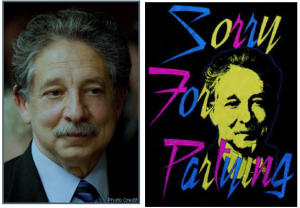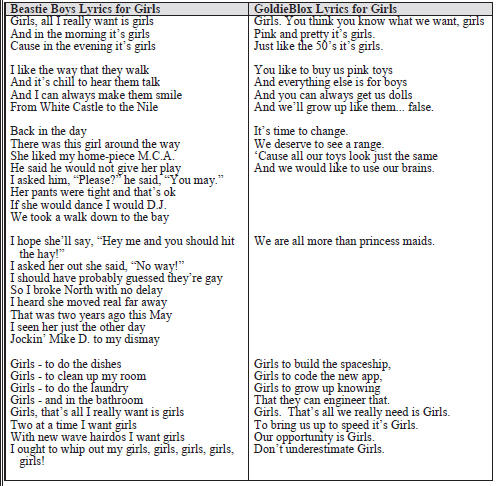The full en banc panel of the Ninth Circuit Court of Appeals has reversed the earlier three-judge panel decision concerning a claimed copyright in the notorious Innocence of Muslims film. The full panel rebuked—wisely—the earlier panel’s holding that Cindy Lee Garcia had an independent and enforceable copyright in her acting performance that would allow her to enjoin reproduction of the video (on YouTube, in particular). Garcia’s case failed both for threshold reasons of fixation, and larger issues of copyright and the First Amendment. The case is a sympathetic one, but the ruling that has now been overruled was an unworkable one that needed to be corrected. Many of the problems and ramifications of the earlier opinion that we have noted were echoed in the decision.
Order Restored—Copyright Claim to Individual Performance in “Innocence of Muslims” Fails
Topics: Copyright Act, Libya, Digital Millennium Copyright Act, DMCA, Youssef, YouTube, Innocence of Muslims, prior restraint, 17 U.S.C. § 106, Cindy Garcia, Copyright, First Amendment, Google, Benghazi, work for hire
Full Ninth Circuit To Rehear “Innocence of Muslims” Copyright Appeal, Could Right Earlier Panel's Error
Fresh on the heels of accepting en banc review of the appeal over the constitutionality of the California Resale Royalties Act, the Ninth Circuit Court of Appeals has decided to rehear Google’s appeal of the injunction against it after actress Cindy Lee Garcia claimed a protectable copyright in her performance of “Innocence of Muslims.” While, as before, one should hesitate to read too much into the mere fact of en banc review, the three-judge panel under review now stands a good chance of being overturned (as it should).
Topics: Copyright Act, en banc, Libya, Youssef, YouTube, Innocence of Muslims, prior restraint, 17 U.S.C. § 106, Copyright, First Amendment, Cindy Lee Garcia, Fair Use, Google, Benghazi, work for hire
Fair Use and Transformativeness Pushback: Seventh Circuit Takes a Swipe at “Lazy Appropriators”
Much ink has been spilled over the new world order seemingly announced by last year’s Second Circuit decision in Prince v. Cariou with regard to copyright, fair use, appropriation art, and “transformativeness.” In a nutshell, while roundly criticized, most commentators have taken the Prince decision to announce the apotheosis of “transformativeness” among the fair use factors in § 107 of the Copyright Act. Prince looked at the four statutory factors and applied them in such a way that to be considered “transformative” was to qualify for fair use. Most troubling was the “know it when you see it” character of the opinion. The Google Books opinions took a similar view.
Topics: Richard Prince, Cheshire Cat, Copyright Act, 17 U.S.C. §106, Seventh Circuit, Prince v. Cariou, Mifflin Street Block Party, Google Books, Campbell v. Acuff Rose, Wisconsin, Sorry for partying, Madison, Copyright, Kienitz v. Sconnie Nation LLC, Judge Frank Easterbrook, First Amendment, transformativeness, Fair Use, mayor Paul Soglin, 17 U.S.C. §107
"Innocence of Muslims" Copyright Decision Against Google Could Put Distribution of Nearly Any Movie at Risk
Last year, the Ninth Circuit stood out amongst fair use decisions in its opinion in Seltzter v. Green Day, particularly in contrast to what has persuasively been dubbed the Second Circuit’s "know it when we see it" approach to transformativeness as annunciated in the Cariou v. Prince decision. By contrast, the potentially destabilizing effect of the Ninth Circuit’s highest profile copyright case in 2014 can scarcely be overstated. Unless and until the full court reverses a three-judge panel in Garcia v. Google, Inc., nearly every motion picture will be in peril of "infringement." The consequences for the First Amendment and for free expression would be devastating. Although it was not raised, expect fair use to come into play if the decision stands and the case heads back to the trial court. The film is clearly transformative precisely because the plaintiff argues that her performance was unknowingly changed in service of a message she found offensive.
Topics: Walter Sobchak, Copyright Act, Feist, Prince v. Cariou, Libya, Digital Millennium Copyright Act, DMCA, Youssef, YouTube, Innocence of Muslims, Green Day, Seltzter v. Green Day, Nothing Compares 2 U, prior restraint, 17 U.S.C. § 106, Cindy Garcia, Copyright, Prince, First Amendment, Google, Sinead O’Connor, Benghazi, work for hire
Now who’s rapping like it’s a commercial? The Beastie Boys counterclaim against GoldieBlox Web advertisement
After GoldieBlox announced with great fanfare that it would withdraw its claim seeking a declaratory judgment that its use in a video of the Beastie Boys song “Girls” was a fair use under the Copyright Act, many assumed that was the end of it and that the only point for discussion was GoldieBlox’s motivation. As we pointed out at the time, however, that “offer” was not accompanied by a dismissal of the already filed lawsuit. Presumably, the Beastie Boys either declined, or failed to respond, because the band has now answered the Complaint and filed counterclaims, alleging copyright and trademark infringement.
Topics: Cariou v. Prince, Copyright Act, Campbell v. Acuff Rose Music Inc., Green Day, Michael Diamond, Adam Yauch, “Girls”, GoldieBlox, Copyright, Adam Horowitz, Beastie Boys, Fair Use
GoldieBlox Parodies the Beastie Boys and “Girls”—Fair Use is Clear, What About Queen’s “Bohemian Rhapsody”?
Coverage has exploded this week of a dispute between the Beastie Boys and a company called “GoldieBlox,” over the latter’s use of the song “Girls” in a video encouraging engineering and structural play toys for girls. Despite coverage focusing on whether Goldie Box copied the Beastie Boys’ song (which is undisputed, really, and thus beside the the point in this case), the fair use of the earlier song is clear: the new version is a parody of a leering anthem, intended to subvert inherent sexism into a message of empowerment. Curiously, however, the fair use in another video on the company’s site using the Queen song “Bohemian Rhapsody” seems less clear, but so far unnoticed.
Topics: License to Ill, Copyright Act, Campbell v. Acuff-Rose Music, Queen, Digital Millennium Copyright Act, DMCA, Adam Yauch, “Bohemian Rhapsody”, “Girls”, GoldieBlox, Copyright, MCA, Beastie Boys, Fair Use
5Pointz Not of "Recognized Stature" Under the Visual Artists Rights Act? Court Takes the Narrow View and Paintings are Whitewashed
Amidst all the coverage over famed graffiti artist Banksy’s recent "residence" in New York and questions about how artistic license would fare against trespassing and graffiti laws (short answer: poorly), another graffiti case in New York this month has explored the reach of the Visual Artists Rights Act of 1990 (VARA). Ultimately, the law did not suffice to prevent the owner of the so-called "graffiti Mecca" from proceeding with its intended use of the property (and obliteration of the graffiti).
Topics: Carter v. Helmsley-Spear, Copyright Act, Inc., Graffiti Art, Visual Artists Rights Act, recognized stature, VARA, Jerry Wolkoff, Banksy, 17 U.S.C. § 106A, Erin Thompson, Copyright, 5Pointz, Litigation
Fair Use and DMCA Take Down—Lawrence Lessig Sues Over YouTube Use of “Lisztomania”
One of the lurking issues in the murky waters of copyright fair use is the takedown notice provision of the Digital Millennium Copyright Act of 1998 (the “DMCA”). The DMCA, codified at 17 U.S.C. § 512, implements two 1996 World Intellectual Property Organization treaties and absolves internet service providers (“ISPs”) who disable allegedly infringing content when notified by the copyright holder. In practice, this is known as a “takedown notice,” and serves to protect ISPs like YouTube from secondary infringement if a user posts something with infringing content (the easiest example being an unedited clip of a copyrighted movie). Copyright holders patrol the internet to various degrees, but § 512 gives the holders a tool to encourage compliance, and ISPs a way not to be sued out of existence.
Topics: World Intellectual Property Organization, ISPs, Copyright Act, Digital Millennium Copyright Act, DMCA, Viacom, YouTube, Eldred v. Ashcroft, Lawrence Lessig, Copyright, 1998 Sonny Bono Copyright Extension Act, Liberation Party Music Ltd., 17 U.S.C. § 512, Fair Use, Harvard Law School
Copyright Office Holds Hearing on Resale Royalty Legislation
The United States Copyright Office solicited public comment last year on possible droite de suite, or resale royalty legislation. As addressed previously, state law attempts to regulate artists’ rights to resale royalties have been struck down as unconstitutional. Among the issues that the Copyright Office grappled with is the basic question of incentive: if a copyright royalty were paid on sales subsequent to the first sale, what effect does that have on the economic incentive to create art? Who benefits? Who is harmed?
Topics: Resale Royalties, Copyright Act, Resale Royalty, Copyright, Copyright Office, Calinfornia Resale Royalty Act
No Infringement in Cariou v. Prince—Second Circuit Plays Art Critic and Finds Fair Use
Two years after a U.S. District Court decision that sent shock waves through the contemporary art world, the Second Circuit Court of Appeals has reversed that earlier finding that Richard Prince infringed the copyright of Patrick Cariou. Instead, the appeals court ruled that all but five Prince works at issue were fair use under the Copyright Act, remanding the case to re-analyze those five works. It is as dramatic a win for appropriation art as the lower court decision was a chill on that art.
Topics: Andy Warhol Foundation, Richard Prince, Copyright Act, Graduation, Second Circuit, Canal Zone, Patrick Cariou, Charlie Company, appropriation art, Meditation, Yes Rasta, Clifford Wallace, Warhol, Cézanne, Copyright, Canal Zone (2008), de Kooning, Picasso, Fair Use, Google, Canal Zone (2007)





